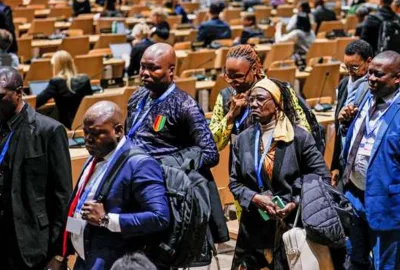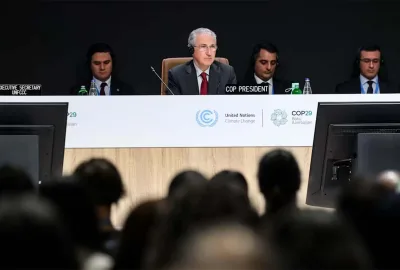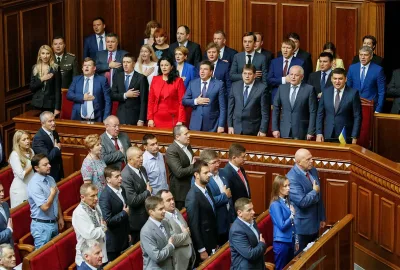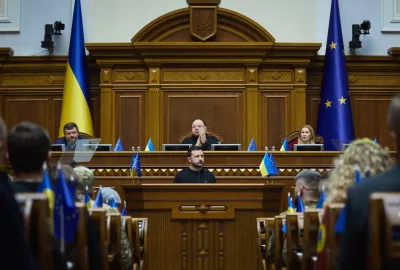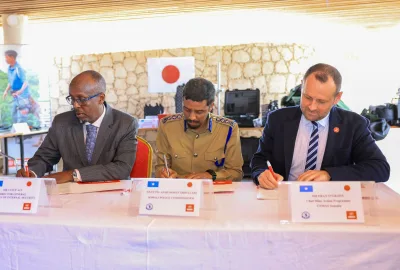Somalia with more than two decades of civil war carries an indelible scar from colonial and…
 Somalia with more than two decades of civil war carries an indelible scar from colonial and authoritarian powers, which have imposed cultural and psychological limits that have become the impervious fault lines of conflict.
Somalia with more than two decades of civil war carries an indelible scar from colonial and authoritarian powers, which have imposed cultural and psychological limits that have become the impervious fault lines of conflict.
Colonialism has shaped the history of ancient cultures throughout Africa and instilled a perpetual exploitation of tribalism, or in the case of Somalia, clannism. Colonialism is defined as “the policy or practice of acquiring full or partial political control over another country, occupying it with settlers, and exploiting it economically.” Post-colonialism; however, is defined by Ania Loomba in her book Colonialism and Post Colonialism “as a study of the legacy of an era of European and American’s direct global domination, and the residual political, socioeconomic, and psychological effects of that colonial history, which ended roughly in the mid- twentieth century (1998).” Other scholars such as Hamza Alavi, Ndirangu Mwaura and Edward Said share similar views, arguing that when colonial domination ends its machinery keeps running within the colonized societies, as it is embedded in its cultural structure. More importantly their influence is also apparent, particularly in Africa, where colonial powers are still connected through economic and social development.
Somalia was colonized by three opposing European colonizers in late 1800s: Britain, which administered over what was known as British Somaliland, Italy with Italian-Somaliland, and the French over the area now known as Djibouti. Somalia gained its independence in 1960, just as decolonization was unfolding in Africa in the late fifties and early sixties.
The after-effects of Somalia’s political and economic dependence on former colonizers is self-evident, and not only in today’s political crisis, but throughout the country’s leadership history. As I was pondering the causes of the country’s current futile political system and perplexed leadership, I realized that the country has dealt with three different leadership scenarios in post-independent Somalia, with startling different generational representation and experience.
Somalia’s Civilian Government:
Somalia’s independence was earned through the concerted effort and the resistance of its population. At the forefront of the resistance were Somali youth, particularly the Somali Youth League (SYL). SYL later became the largest political party in Somalia winning the majority seats in parliament and forming the country’s first government. Indeed, Somalia’s social development and historiography were influenced by the policies and cultures of its European colonizers. Like other newly independent African nations, Somalia was attempting to find its way, and the new young post-colonial leaders were devoted to the pursuit of modern thinkers and modern practical institutions. This was a period of intense hope, of nation building, of the infrastructure, literature and identity. Somalia’s first leaders, though of the colonial generation, had a shared passion for freedom, nationalism, and envisioned a better future for the country. While it might not have been clear to them how to achieve a new reality throughout the country in their short period of time, these leaders, nevertheless, created a level of political participation that was rare in Africa and to some extent, exceeded their European colonizers. This exploration into country building by young leadership, however, was cut short by the assassination of then President of Somalia, Abdirashid Ali Sharmake on October 15, 1969, which was followed by a military coup d’état five days later. With the military coup d’état, led by Major General Mohamed Siyad Barre, the country suddenly stared down the lens of opposite direction, a pivotal event that has shaped the country’s social and economic history in the decades to come and explains too much of today’s dichotomy politics.
Somalia’s Authoritarian government:
The course of history within Somalia and its democratic system of governance were completely transformed in 1969 when the military took control over the government and implemented its autocratic system. This single act gave birth to a new political system, social fragmentation, and a legacy of which the country seems unable to get out of today, including many of the current leadership calamities.
The political leadership that emerged during the colonial period were somewhat developed and matured in the first decade of independence under a parliamentary democracy. Unfortunately, with the advent of the military dictatorship, the political system and the leadership were fundamentally altered, with politics and leadership now monopolized by one man and everything subservient to his whim. Any dissentions to the dictates of the new military leadership were met with extrajudicial reprisal. Thus, both politics and leadership were imposed on the country rather than being developed through the wishes of the people and through the experience of its leaders within the various national institutions. In this context, the military regime incubated and inflated a social division by taking advantage of the country’s clan fragility and pin society with each other in order to deter attention away from its regime and to keep an absolute power. This became obvious once the military dictatorship collapsed and there was no obvious substitute system or leadership available to take over. The result was the emergence of a new type of leadership that filled the vacuum using the same coercive methods of their predecessor, but under a situation of lawlessness.
Somalia’s Leadership after the Civil War:
Since the collapse of the political system and the disintegration of the state, further social fragmentation has been perpetuated, and the country has fallen into various “independent” or quasi-independent regions. The country has struggled to recover economically and is further away from genuine internal peace and reconciliation within a united Somalia with one vision. The country’s current leaders are the product of the military regime and are accustomed a sole leadership power -the president. The complexity and challenges attached to this generation are evident and on display in the infighting and the overall crisis of leadership in Somalia; where government legitimacy boils down to, who has the right of authority over whom and who can outsmart and outlive of its opponent. The current politics of Somalia have become a zero-sum game with very little appreciation of the looming humanitarian crisis and the massive internal and external displacement of refugees. In the absence of a genuine leadership role model, the leaders are perplexed and aimless to say the least. Somalia needs a holistic approach to rebuild. It’s been said that when people are challenged, they fall back to what they know the best, in this case monopolistic power.
The road to recovery:
Somalia has a tragic history and was shaped by enigma of deep-seated and intertwined forces. The country wears the scars of colonial rule, the marks of the military regime’s authoritarian and brutal system, and the self-inflicted wounds of civil war. What becomes apparent; however, from all the trial-and-error style of governments thus far, is that the country is still finding its identity just as it was during the emancipation. The only difference today is that Somali leaders are actively participating in the country’s perpetuated tragedy. The current reality of Somalia’s political culture indicates that the role leaders are playing in the political and social restructuring of the country is largely ineffectual. To be effective, the leaders must radically change the narrative of their politics and assume responsibility for stabilizing the country and giving hope to the populace. Hence, today’s governing leaders need to make the important choice between the desire to maintain a centralist system or usher the country on a path towards a federalism solution.
If the country does not rectify its identity crisis, if it does not address internal grievances, then the current infighting and the dependence in political processes and economic development on foreign countries will continue to preserve Somalia as a poor and devastated region on the corner of Africa. My hope is that both Somali leaders and society in general will come to realize the gravity of the country’s situation, and with that, the need to re-establish some normalcy and re-start a nation building.
Farhia Ali Abdi.


